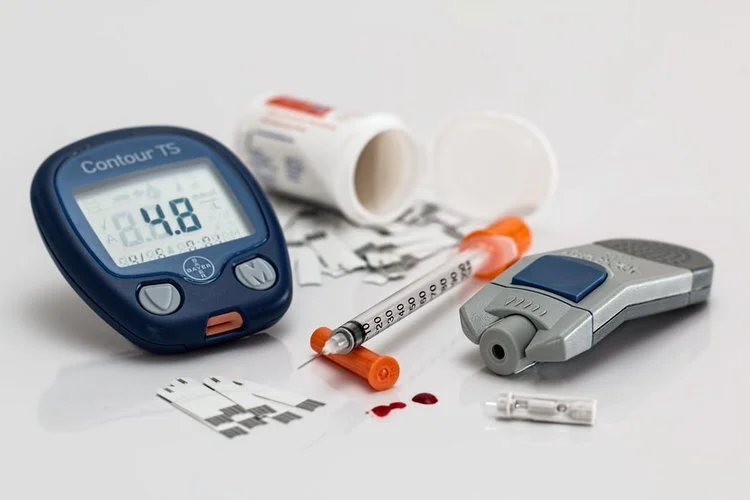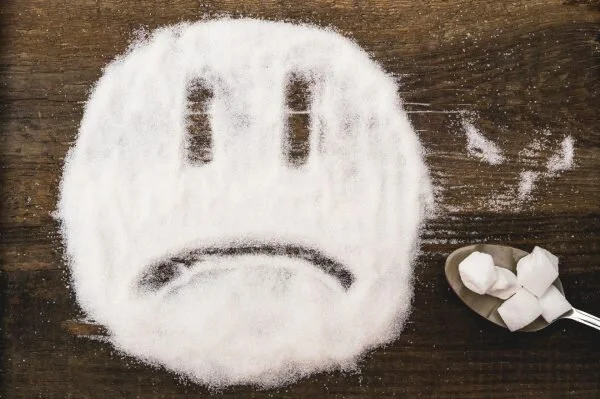Soda and Brain Health: Everything you Need to Know
Is soda bad for your brain?
You may know that sugary soda is bad for your waistline, but do you know that it affects your brain, too? And if you think diet soda is a better choice - think again!
As a nutritionist focused on brain health, anything that affects your brain is a great concern of mine. Soda is no exception.
So for those of you who prefer a can of soda in the morning to rev up your engine, or for those of you who down a soda to get yourself through the mid-afternoon slump, I have a newsflash for you… soda is damaging your brain!
When consumed in excess, added sugar can adversely affect your health. And if your general health is negatively affected, then so, too, is the health of your brain. —Kelly
Added sugars come in many forms. In addition to “eating” sugars found in many refined and processed foods, we also “drink” a surprising amount of sugar in the form of fruit juice, sugar-sweetened coffee, energy drinks, slushes, and other forms of liquid sugar.
Of course, some sources of added sugar are worse than others, but sugary sodas are by far the worst!
If you already know that you want to kick sugar to the curb, like I did but need help crossing the finish line check out my 14 Day Sugar Detox Program!
Why is soda bad for your brain?
Sugary soda has been linked to an increased risk of dementia.
Yes, regularly drinking soda increases your risk for dementia! So if Alzheimer’s runs in your family, think twice about what you put in your mouth!
Science dictates that increased blood sugar levels are associated with an increased risk of dementia. And one very easy way to increase your blood sugar levels is by drinking a lot of sugary soda.
Too much added sugar, in any form, can lead to poor memory, cognitive decline, and reduced brain volume - especially in the area of the brain responsible for short-term memory.
So, to keep your memory strong and lower your risk of cognitive decline, I urge you to think twice before drinking too much sugar.
The thought of Alzheimer’s (or dementia in general) is scary. It conjures up certain images in our mind. The thought of forgetting who you are and the ones you love the most is terrifying. No one wishes this upon themselves or anyone else.
However, certain lifestyle choices we make can help dictate when or even if we go down this frightening path. Don’t you owe it to your future self?
Sugary soda can cause addictive behaviour.
Soda can be addictive. It increases dopamine release in the brain and provides a feeling of pleasure.
Our brains are actually hard-wired to seek out activities and substances that provide pleasure. This dates back to ancestral times as our neural systems evolved to motivate and reinforce foraging. These same systems underlie drug-seeking and pleasure-seeking activities; like the feelings we have when we consume sugar.
If you have an addictive personality or are predisposed to addictive behaviour, sugar, from soda and processed junk foods in general, can become an addiction.
Rat studies have verified that sugar is physically addictive and creates opiate-like withdrawal symptoms. In other words, sugar can affect your brain in the exact same way that opiate drugs do.
We may crave it, binge on it, and feel withdrawal symptoms when deprived of it. These withdrawal symptoms can manifest as anxiety, depression, moodiness, headaches, and even physical symptoms like the shakes.
The scary part, as I personally discovered, is that we can be addicted to sugar and not even realize it! It was only after making the conscious effort to avoid sugar for an extended period of time and going through withdraw symptoms myself, that I realized I was an addict. At the time, I didn’t even know that sugar could be addictive - as may be the case with many of you.
If you think this may be an issue for you, try two weeks without any form of added sugar and see how much better you feel!
Soda can cause leptin resistance.
Leptin what? Leptin is a hormone released by your body's fat cells to help it maintain its weight. The more fat cells you have, the more leptin is produced. Leptin’s job is to send signals to the hypothalamus in the brain, alerting it when you’re full and should stop eating, or when you are hungry and in need of food. Because it regulates the amount of calories you eat and burn, it’s often referred to as the body’s satiety hormone.
Leptin helps inhibit hunger and control energy balance so that the body does not trigger a hunger response when it doesn’t need energy.
Normally, excess fat cells produce leptin which trigger the hypothalamus to reduce appetite. This allows the the body to tap into fat stores to feed itself. But if a person is obese, they often keep eating, ignoring signals from their brain telling them to stop.
When there are continually high levels of leptin in the blood, it can cause a lack of sensitivity to the hormone and we become resistant to leptin’s effects. The person keeps eating, which creates more fat cells, and more fat cells create more leptin.
This resistance to leptin’s effects is referred to as leptin resistance and is believed to be a leading driver of weight-gain in humans.
How is this connected to soda? Well, it is extremely easy to drink excess calories in the form of liquid sugar and sugary drinks like soda. They do not fill us or trigger a satiety response, making it easier to consume massive amounts at a time - or at minimum, more than needed. Doing so repeatedly can lead to leptin resistance and weight gain.
Sugary sodas may be the leading dietary cause of type 2 diabetes.
Yet another reason why soda is bad for you and your brain is because it can lead to diabetes - a disease affecting millions worldwide. Even drinking just one can of soda each day increases your risk substantially.
And how does this affect your brain? Those with diabetes are much more likely to develop Alzheimer’s disease in the future!
The excess insulin produced by people with type 2 diabetes enters the brain where it disrupts brain chemistry and encourages the formation of toxic proteins. These toxic proteins, the very same ones formed in Alzheimer’s patients, end up poisoning brain cells.
In addition, diabetes has been linked to a smaller hippocampus (the part of the brain involved in memory formation) and reduced blood flow to the brain (a good predictor of future memory problems).
So if you value your most valuable organ, you may want to think twice before reaching for that soda!
What about artificial sweeteners?
If I’ve encouraged you to put down that Coke, you may be tempted to opt for a zero-calorie diet version instead. Is that a better choice?
Though the safety behind consuming artificial sweeteners is a very controversial topic, with passionate proponents on both sides of the issue, I’d err on the side of caution and leave that diet soda alone.
Why take a chance?
Be sure to tune in next week as I delve into the world of artificial sweeteners and discuss just how bad they are for your brain.
In the meantime, should you or a loved one be in need of help kicking sugar to the curb or improving your brain health in general, I’d be happy to help!
As always, I welcome your thoughts and value your feedback. Let me know what you think by dropping me a line or commenting below.
If you haven’t already done so, please sign up to receive my newsletters for more information about brain health, neuronutrition, lifestyle tips, and nutritional advice. Of course, if I can help you or a loved one with your nutritional needs, make an appointment to see me today!






